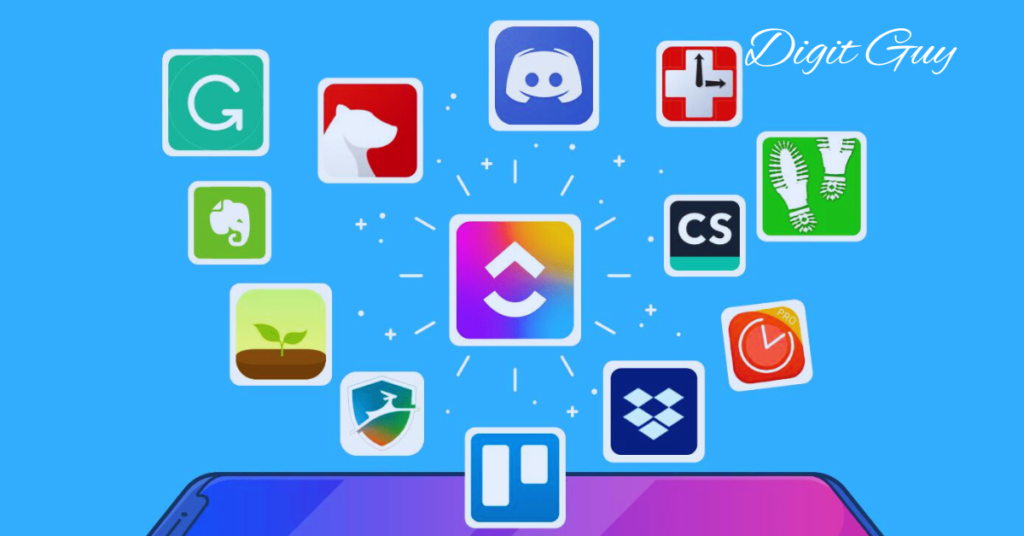Mobile technology has become a cornerstone of modern remote work. As businesses increasingly embrace flexible work arrangements, the role of mobile devices in facilitating remote work cannot be overstated.
Mobile technology enables employees to stay connected, productive, and efficient regardless of their location. This article explores how mobile technology has transformed remote work and what this means for the future of work.
Evolution of Remote Work
To understand the current impact of mobile technology on remote work, it’s important to look at its evolution. Remote work has a long history, beginning with telecommuting in the early 1970s. However, the COVID-19 pandemic accelerated its adoption, pushing companies to rethink traditional office settings.
As remote work became the norm, mobile technology emerged as a critical enabler, providing tools and solutions that support a mobile-first work environment.
Mobile Devices as Essential Tools

Mobile devices such as smartphones, tablets, laptops, and wearables have become essential for remote work. Smartphones offer flexibility and immediate access to communication tools, allowing employees to respond to emails, participate in meetings, and stay connected on the go.
Tablets and laptops provide more extensive functionality for tasks such as document editing and software use, making them indispensable for remote workers. Additionally, wearables, like smartwatches, help manage schedules and monitor productivity, further integrating technology into daily work routines.
Communication and Collaboration
Effective communication and collaboration are key to successful remote work, and mobile technology plays a significant role in this area. Video conferencing tools such as Zoom and Google Meet allow for virtual meetings, bringing teams together despite physical distances.
Collaborative document editing platforms like Google Workspace and Microsoft 365 enable real-time collaboration on documents, spreadsheets, and presentations, ensuring that remote teams can work together seamlessly.
Productivity Apps

Productivity apps are another vital aspect of remote work supported by mobile technology. Time management tools like Todoist and Trello help employees organize their tasks and manage their schedules effectively.
Project management software such as Asana and Monday.com allows teams to track progress and allocate resources efficiently. Cloud storage solutions like Dropbox and Google Drive ensure that important files are accessible from anywhere, supporting a smooth workflow and file sharing among remote teams.
Security and Privacy Concerns
With the advantages of mobile technology come significant security and privacy concerns. Data security is a major challenge, as remote work often involves accessing sensitive information from various locations and devices.
Mobile device management (MDM) solutions help mitigate these risks by enforcing security policies and monitoring device usage. Implementing best practices, such as using strong passwords, encrypting data, and regularly updating software, is crucial for maintaining a secure remote work environment.
Impact on Work-Life Balance

Mobile technology has a profound impact on work-life balance. While it offers the flexibility to work from anywhere, it can also blur the lines between work and personal life. The constant connectivity enabled by mobile devices means that employees may find it challenging to disconnect from work.
Tools like Focus@Will and RescueTime help manage work-life balance by tracking productivity and providing strategies for effective time management, helping individuals maintain a healthy separation between their work and personal lives.
Case Studies
Examining real-world examples can provide valuable insights into how mobile technology enhances remote work. For instance, a company like GitHub successfully implements mobile technology to support its distributed workforce, utilizing a range of communication, collaboration, and productivity tools.
Challenges such as maintaining team cohesion and managing remote workflows are addressed through strategic use of technology, demonstrating how mobile solutions can effectively support remote work environments.
Future Outlook

Looking ahead, mobile technology will continue to shape the future of remote work. Emerging trends include the integration of artificial intelligence (AI) and machine learning to further enhance productivity and streamline workflows.
Innovations in mobile technology will likely bring new tools and features that support remote work, making it even more efficient and adaptable. Predictions for the next decade suggest that remote work will become increasingly normalized, with mobile technology playing a central role in this transformation.
Conclusion
Mobile technology has fundamentally changed how we approach remote work, providing tools and solutions that enhance productivity, communication, and collaboration.
As remote work becomes more prevalent, the role of mobile technology will only grow, offering new opportunities and challenges for businesses and employees alike. Embracing these technologies and understanding their impact is essential for thriving in the evolving landscape of work.
FAQ’s
How has mobile technology improved remote work?
Mobile technology has improved remote work by providing tools for communication, collaboration, and productivity, allowing employees to work efficiently from any location.
What are some essential mobile devices for remote work?
Smartphones, tablets, laptops, and wearables are essential mobile devices for remote work, offering flexibility and functionality for various tasks.
How can companies ensure security in remote work environments?
Companies can ensure security by implementing mobile device management solutions, using strong passwords, encrypting data, and following best practices for cybersecurity.
What impact does mobile technology have on work-life balance?
Mobile technology can blur the lines between work and personal life, but tools like Focus@Will and RescueTime can help manage work-life balance effectively.
What future trends are expected in mobile technology for remote work?
Future trends include advancements in AI and machine learning, which will enhance productivity and streamline workflows, making remote work even more efficient.
